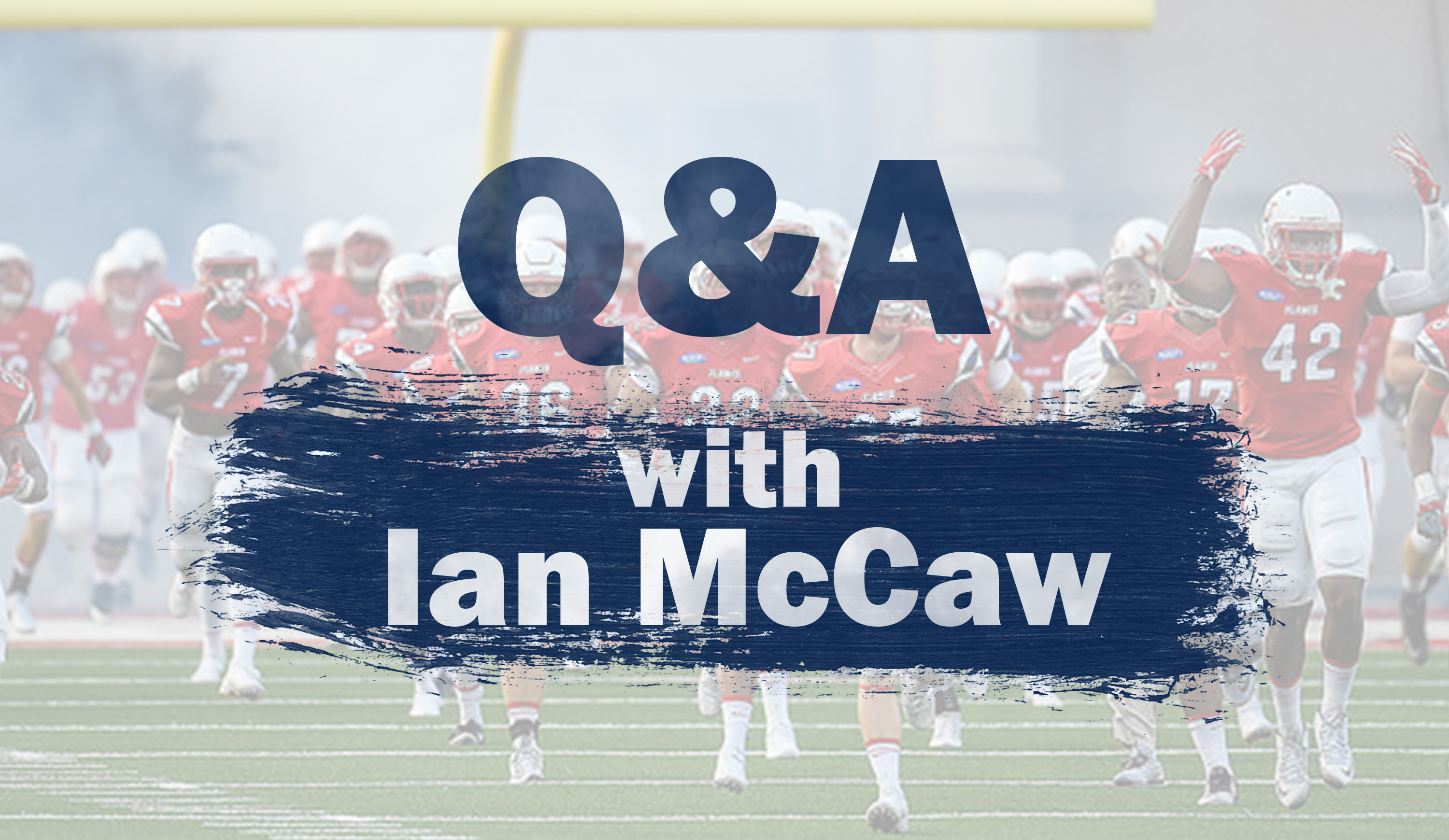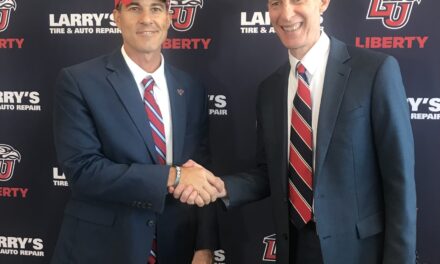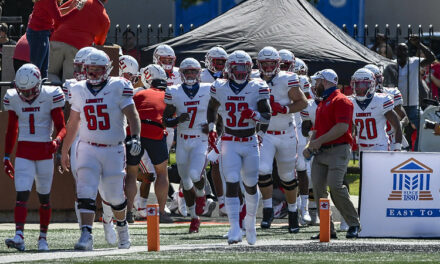We had the privilege of speaking with Liberty Athletic Director Ian McCaw at length about Liberty’s announced move from FCS to FBS Independent football playing status. We will release the full context of this discussion by way of a 3 part Q&A series. Part 1 focuses on the finances behind the move to FBS, LFSN, the scholarship increase for the football team and on the women’s side, could hockey be going NCAA, and we take a look at future conference affiliation possibilities.
Jon Manson: Making the move to FBS obviously requires a big financial commitment for the school and athletic department, what are some ways the University & athletic department can get a return on that investment?
Ian McCaw: Certainly, we will be looking as we transition to FBS there will be opportunities for revenue generation whether it’s through ticket sales, television, guarantees. There’s definitely opportunities to generate more revenues on that side of the ledger. It does, it takes more of an investment. We go from 63 to 85 scholarships, probably a little more travel involved than we have previously, especially playing as an Interdependent. There’s definitely going to be some additional expenses, as well. So, we need to budget and anticipate all the things that will go along with this. This is really an unprecedented move, quite honestly. I think the last school that truly made this move as an Independent was BYU, and that was about 50 years ago. Most schools, in recent years, have made this move through conference affiliation. So, we’re going down some not recently chartered territory.
JM: With LFSN and not being in a conference that receives compensation from a TV package, how big of a factor does LFSN play in being able to go Independent?
IM: No question that’s something we need to dig into because if you look, obviously, at Notre Dame and what they’ve done with their television rights, BYU has a very successful television network. That’s something that we need to explore, and figure out how we can monetize and also maximize in terms of exposure. That will definitely be a big push as we move forward.
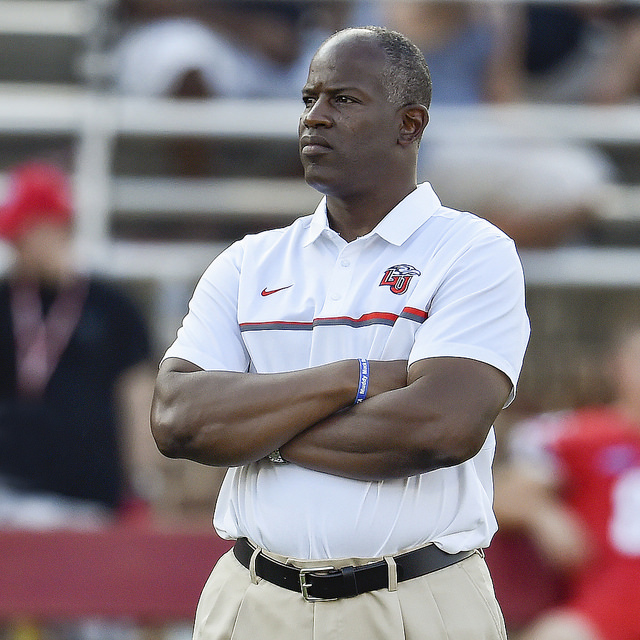 JM: What’s the schedule for scholarships, do we increase for 2017, and when do we expect to reach a full allotment of 85 scholarships?
JM: What’s the schedule for scholarships, do we increase for 2017, and when do we expect to reach a full allotment of 85 scholarships?
IM: We could increase at this point in time, but it’s truly going to be up to Coach Gill in terms of how we integrate the additional scholarships. I think you want to have some level of balance where you wouldn’t want to have a class that’s disproportionately heavy. So, I would expect that we would go part-way, maybe halfway from 63 to 85 in 2018, and most of the rest in 2019, and certainly by 2020 I would expect we would have fully implemented 85 scholarships.
JM: With the increase in the number of scholarships to football, obviously scholarships will have to be added on the women’s side to comply with Title IX. What are the thoughts on where those additional scholarships will come from?
IM: From a gender equity standpoint, we’re going to have to dig into this in a serious way. I know there’s been some preliminary looks at this, but that will be something we’re going to do as part of the strategic planning process this Spring and really try to figure out, as we fully ramp up to FBS, what does that look like in terms of equity, in terms of participation opportunities and scholarships. We will make sure that we have a plan that isn’t just short term, year to year, but is one that we feel good about over the next 5 to 10 years.
JM: No specific sports or anything that have been narrowed in on at this point in time?
IM: There certainly in the past has been some discussion about women’s golf being an optional sport to add, and that certainly remains very much a possibility. We’re going to really go through a study and self-assessment on that as part of the strategic planning process. We’ll come up with a good strategy by the summer.
JM: You have a little bit of history with hockey, obviously we have hockey programs at the club level, has there been any talk of maybe hockey becoming an NCAA sport, particularly on the women’s side?
IM: I haven’t heard any of that discussion at this point. I’m a big fan of our club teams. I love to watch them play. It’s a great atmosphere, and they do a great job. We haven’t had any discussions since I’ve been here about elevating the hockey programs. I think they’re doing a great job with where they are right now.
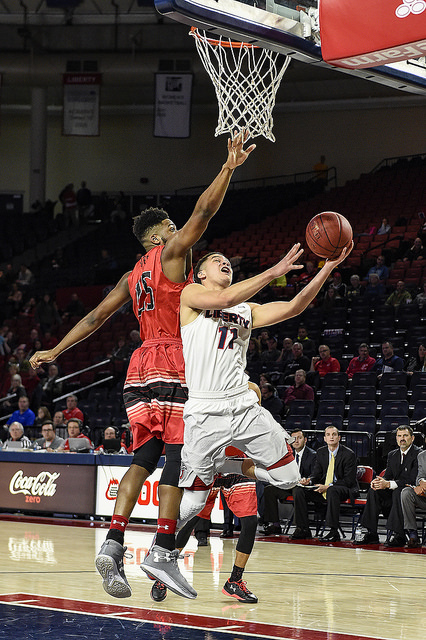 JM: I know we want to stay in the Big South for the foreseeable future, if, for whatever reason, the Big South does not approve the waiver to keep our other sports in the conference, what are the other options out there for the other sports?
JM: I know we want to stay in the Big South for the foreseeable future, if, for whatever reason, the Big South does not approve the waiver to keep our other sports in the conference, what are the other options out there for the other sports?
IM: Our plan is to stay in the Big South, subject to the vote by the Presidents and Chairmen, through this transition period. Obviously there are a lot of variables including a possible opportunity for an FBS conference at some point in the future, but we will look at contingency plans, as necessary, for the other programs.
JM: For football, it sounds like joining an FBS conference is still part of the plan in the future. Will we plan on pitching other conferences?
IM: We’re obviously moving forward as an Independent, but at the same time we certainly would be very open and receptive to a conference affiliation opportunity. It’s one of those situations where we have our eyes on the road and we’re focused on Independence, but at the same time if we see an opportunity coming along we will certainly explore that.
Stay tuned for Parts 2 and 3 of our discussion with Athletic Director Ian McCaw over the next few days!

